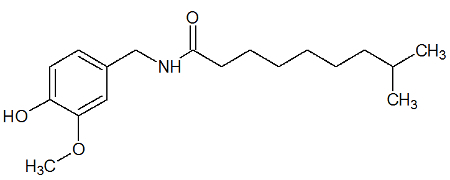O urinary system, also called urinary tract, is the system of Human Body responsible for removing, from our body, toxic substances and that are in excess. By ensuring that these substances are eliminated, it promotes what we call homeostasis — the balance of our body's internal environment.
The urinary system is formed by two kidneys, two ureters, one urinary bladder and one urethra. Urine is formed in the kidneys, more precisely in the nephrons, and then travels through the ureters to the bladder, where it is temporarily stored. At the time of urination, urine is taken to the outside through the urethra.
Know more:Kidney failure - what it is, causes and consequences
Urinary System Organs
The urinary system is made up of two kidneys, two ureters, a urinary bladder and an urethra. Let's learn a little more about each of them below:

Kidney: our urinary system has a pair of kidneys, structures that resemble a bean. The kidneys are about 10 cm long and are located on either side of the
spine. Its role is to ensure the production of urine, formed in structures called nephrons. Each human kidney may have about a million nephrons, which work to ensure filtration of blood and the formation of urine. The nephron is formed by a tangle of capillaries, called renal glomerulus, which is involved by the glomerular capsule. From the capsule, a long tubule, called the nephron tubule, leaves and can be divided into three portions: proximal tubule, loop of Henle and distal tubule.Ureters: our body has a pair of ureters, which start from the kidneys and extend to the urinary bladder. They ensure that the urine, produced in the kidney, reaches the bladder, where it is stored. Each of these tubes ranges from 25 cm to 30 cm.
Urinary bladder: serves as a place for the temporary storage of urine. This muscle organ stores about 700 ml of urine, which reaches him through the ureters.
Urethra: it is the tube that ensures that the urine reaches the external environment. It is noteworthy that, in men, it also serves as a passageway for sperm during ejaculation. The male urethra is much larger than the female. While this one is from 4 cm to 5 cm in length, that one is about 20 cm.
formation of urine
THE urine formation it is a complex process that involves three basic steps: filtration, reabsorption and secretion — all occur in the nephron.

Filtration: blood reaches the nephron via the afferent arteriole. This branches and forms the so-called renal glomerulus, which is a tangle of capillaries. In the glomerulus, blood pressure forces plasma out of the capillaries into the capsule, forming the filtrate. This filtrate has a composition similar to plasma, but practically without protein. The filtrate leaves the capsule towards the nephron tubule.
Resorption: in this process, which occurs in the nephron tubule, the reabsorption of Water and of some important substances for our body.
Secretion: during the passage through the nephron tubule, other substances, such as drugs and some metabolites, are added to the urine through the process of secretion. In this process, substances are secreted from the blood into the tubule.
The urine formed, therefore, is the result of glomerular filtration and reabsorption and secretion processes that take place in the tubules. After leaving the nephron tubules, the urine, now fully formed, reaches the collecting duct and is conveyed to the ureters.
Read too: Why is the pee color yellow?
Problems Affecting the Urinary System
kidney stones and urinary infections are two major problems that affect the urinary system. O kidney stone, also called kidney stones, is caused by the aggregation of crystals present in urine. This disease can cause severe pain in the lower back, which may be accompanied by nausea and vomiting. A diet rich in salts and proteins and low water intake are factors that can favor the development of kidney stones.
At urinary infections, in turn, are a serious health problem caused mainly by bacteria. These microorganisms can affect the urethra and migrate to the bladder and kidneys. When the infection remains restricted to the urethra, it is called urethritis. When it reaches the bladder, we have a picture of cystitis. When the kidneys are affected, the infection is called a pyelonephritis and stands out for being more serious than the others. Fever, burning when urinating, wanting to urinate several times and pain in the region of the “belly foot” are some of the symptoms observed in the case of urinary infections.
Read more:Infections - symptoms, examples, difference with inflammation
Let's review what we learned?
Answer the questions presented in the following figure and complete the crossword:

Did you manage to answer all the questions? Check out the answers below:
1. What is the name of the urinary system organ responsible for storing urine? Urinary bladder
2. What is the name of the tubes that run from the kidneys to the urinary bladder? ureters
3. What is the name of the tube through which urine is expelled to the external environment? Urethra
4. What is the name of the first stage of urine formation? filtration
5. What is the name of the functional unit of the kidney? nephron
6. What is the name of the organ responsible for the production of urine? Kidney
7. How many ureters does the human urinary system have? Two



